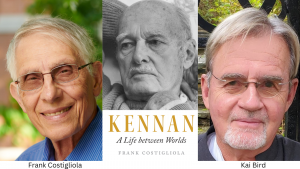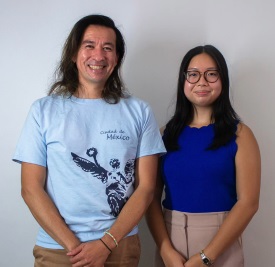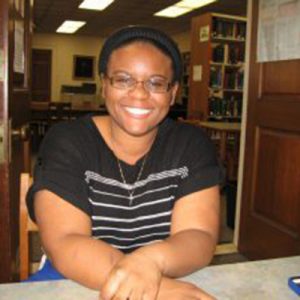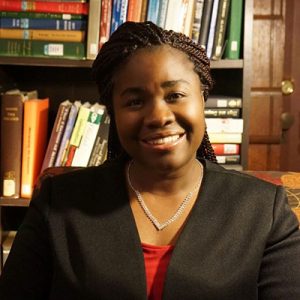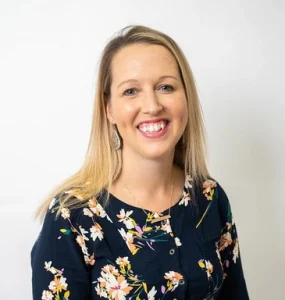On September 25, Prof. Manisha Sinha visited Washington D.C., where she discussed her new book, The Rise and Fall of the Second American Republic: Reconstruction, 1860-1920, as part of the Congressional Dialogue series. Speaking before an audience of more than two hundred Members of Congress, Prof. Sinha discussed the relevance of Reconstruction to contemporary politics, and to the issues Americans face today.
Uncategorized
Historians Mahoney and Horrocks on American Girl Dolls
History Ph.D.’s Mary Mahoney ’18 and Allison Horrocks ’16 explore American Girl dolls through 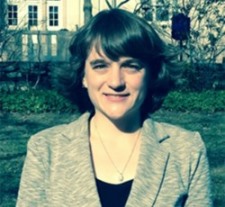 lenses of history and pop culture in their podcast “The Dolls of Our Lives,” and their recent book, The Dolls of Our Lives: Why We Can’t Quit American Girl.
lenses of history and pop culture in their podcast “The Dolls of Our Lives,” and their recent book, The Dolls of Our Lives: Why We Can’t Quit American Girl.
Their work has garnered significant attention and interest. It has been featured in UConn Today, “In New Boo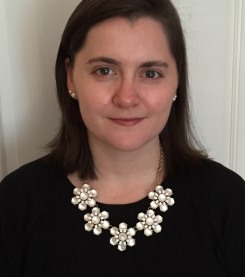 k, History Ph.D.s Explore ‘Why We Can’t Quit American Girl,’” where they discuss their podcast, their book, and weigh-in on which American Girl’s they think would earn history Ph.D.’s.
k, History Ph.D.s Explore ‘Why We Can’t Quit American Girl,’” where they discuss their podcast, their book, and weigh-in on which American Girl’s they think would earn history Ph.D.’s.
Prof. Sinha Signs Brief in Colorado Ballot Case
Prof. Manisha Sinha is one of twenty-five Civil War and Reconstruction historians who signed an amicus brief in support of Colorado’s attempt to remove Donald Trump from the ballot under the 14th Amendment, which bars insurrection participants from running for office. A summary of the brief’s main arguments is featured in the Guardian article, “US historians sign brief to support Colorado’s removal of Trump from ballot.”
Find the whole brief here.
A second brief from historians regarding the case cites Prof. Sinha’s upcoming book, The Rise and Fall of the Second American, 1860-1920.
Frank Costigliola on George Kennan, with Kai Bird November 9th
University of Connecticut Board of Trustees Distinguished Professor of History, Frank Costigliola will discuss his most recent book, Kennan: A Life between Worlds, with the Executive Director of the Leon Levy Center Kai Bird. The hybrid event will occur Thursday, November 9th, 2023, at 6:30 p.m. in-person at the CUNY Graduate Center’s Segal Theatre and online via Zoom.
CLAS Connections: Jason Chang and Karen Lau ’25 (CLAS)
Prof. Manisha Sinha, new president-elect of SHEAR
 After a recent election, Professor Manisha Sinha is now the president-elect of the Society for Historians of the Early American Republic (SHEAR).
After a recent election, Professor Manisha Sinha is now the president-elect of the Society for Historians of the Early American Republic (SHEAR).
Established in 1977, the Society for Historians of the Early American Republic (SHEAR) is an association of scholars dedicated to exploring the events and the meaning of United States history between 1776 and 1861. SHEAR’s mission is to foster the study of the early republican period among professional historians, students, and the general public. It upholds the highest intellectual standards of the historical profession and encourages the broad diffusion of historical insights through all appropriate channels, including schools, museums, libraries, electronic media, public programming, archives, and publications. SHEAR cherishes a democratic ethos in scholarship and cultivates close, respectful, and productive exchanges between serious scholars at every level of experience and recognition. SHEAR membership is open to all; most members are professional historians employed in colleges, universities, museums, and historical parks and agencies, as well as independent scholars and graduate students.
Elected to the Nominating Committee for 2024-2026 were two department alumni: Antwain K. Hunter, University of North Carolina, Chapel Hill (MA ‘09) and Jessica C. Linker, Northeastern University (PhD ’17).
Congratulations to everyone!
Mansfield Historical Society and Ann Galonska Win Award
 Congratulations to the Mansfield Historical Society and Museum Director, Ann Galonska for receiving the Employer Career Advocate of the Year from UConn’s Center for Career Development!
Congratulations to the Mansfield Historical Society and Museum Director, Ann Galonska for receiving the Employer Career Advocate of the Year from UConn’s Center for Career Development!
We celebrate several years of successful internship placement with MHS and greatly appreciate Ms. Galonska’s outstanding mentorship of our students.
Graduate Students Spotlight
Join us in congratulating our past and present UConn History graduate students on their wonderful achievements!
Graduate student Constance Holden has been awarded the 2023-2025 UConn Greenhouse Studios Graduate Assistantship to Support Diversity in Digital Humanities.
Former graduate student and current New England Air Museum Curator Nick Hurley (MA ’15) has been named the 2023 U.S. Army Center of Military History (CMH) Scholar in Residence. This program is a professional development opportunity established in 2021 for Army National Guard and Reserve officers possessing advanced degrees in history. Participants spend one year on the rotating faculty of the Department of History at the United States Military Academy at West Point and another as a member of the CMH staff in Washington, D.C.
Fiona Vernal Awarded Partnership Grant for Public History Work
UConn History and Africana Studies Professor, Fiona Vernal was awarded a $200,000 Partnership Grant from Connecticut Humanities for the expansion of her public history program, “An Integrated Framework for Engaged, Public, Oral, and Community Histories” (or EPOCH), she founded in 2015. EPOCH fosters collaboration between UConn undergraduates and faculty, as well as community organizations and archivists to highlight both Connecticut and global histories. Past projects include child labor exploitation in global chocolate production and an 80-year history of housing discrimination in Hartford. This recent partnership with Connecticut Humanities will allow EPOCH to collect community histories across Connecticut beginning with Bloomfield, Windsor, and Enfield. Prof. Vernal’s work and new partnership with Connecticut Humanities are featured in the UConn Today article, “EPOCH Shares Community Histories, From Connecticut to Côte d’Ivoire.”
History Alum Kate Aguilar on Black Quarterbacks in Super Bowl
UConn History Alum Kate Aguilar, now an Assistant Professor in History at Gustavus Adolphus College, contributed a thought-provoking piece to the Washington Post about race and football ahead of the first contest between two Black quarterbacks in the Super Bowl, “It took until 2023 for two Black QBs to start in a Super Bowl. Here’s why.” The article explores how narratives about Black people during slavery “being athletically superior but intellectually inferior” have impacted where white owners and white coaches have allowed Black players to participate on the football field. Her hope is that the attention to this historic moment will draw attention to the barriers placed on Black athletes historically and in the present, which will “help fans better understand how slavery — and the noxious, racist ideas that came with it — still affect how we see race, sports and leadership in the 21st century.”
Kate Aguilar’s research focuses on the intersection of Black student activism and the Black athlete at the University of Miami (Fla.)
